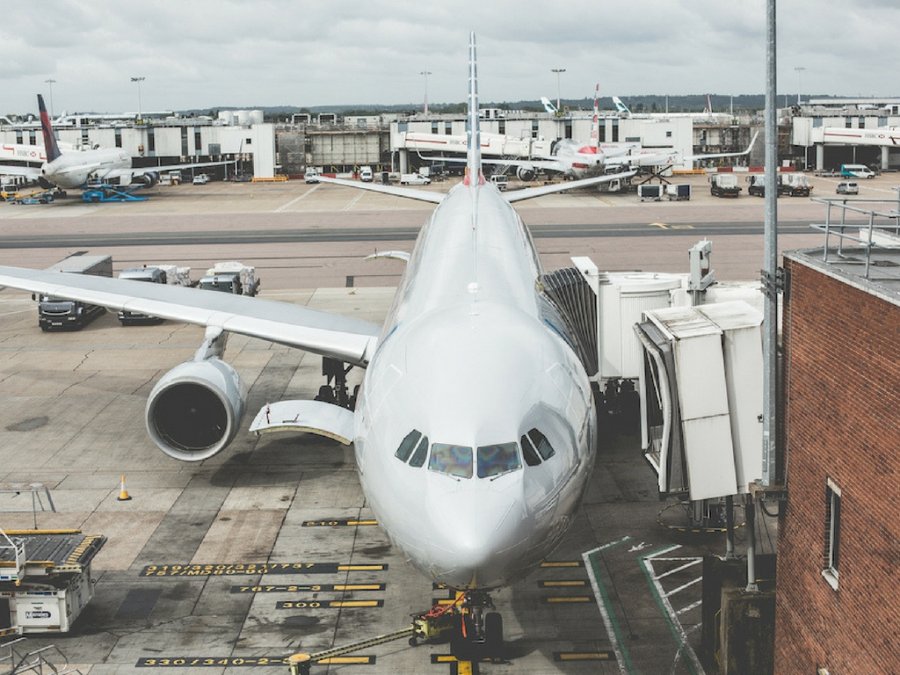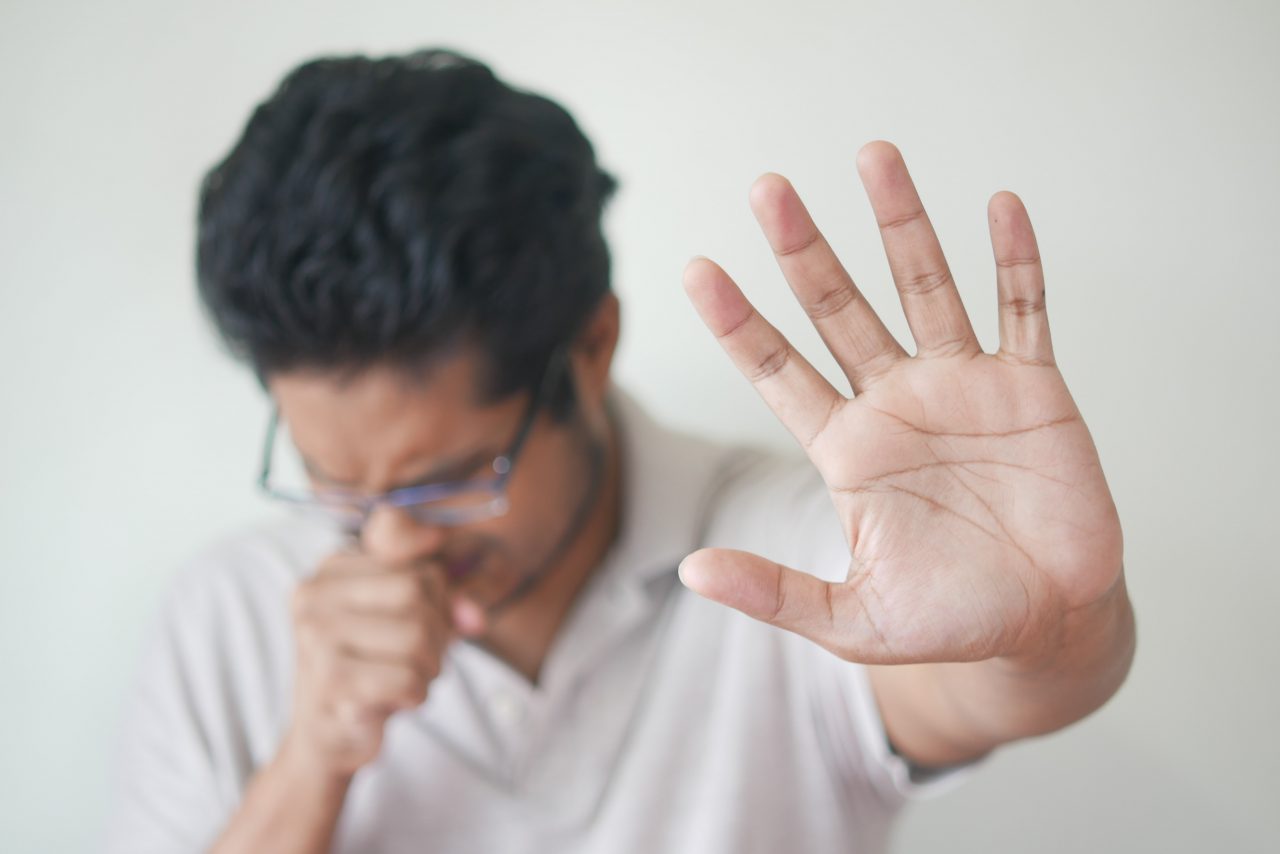To test or not to test… that is the question facing tens of thousands of holidaymakers as they gear up for what might be their first family holiday abroad in three years. It’s the nightmare scenario every parent must be dreading. You’ve had your holiday booked for weeks, months even. The excitement has gradually been building throughout the last weeks of term. Now the schools have broken up, the kids are at home, you’re busy getting everything prepared… and then it happens.
One of you breaks out in a fever. Or develops a cough. Or starts complaining of flu-like symptoms, achey tiredness, chills. Or woe betide, loses their sense of smell.
You’re meant to fly in two days. What do you do?
No doubt a lot of people will be tempted to say – go anyway. Don’t take a test. As long as the symptoms don’t become severe and you feel ok in yourself, what’s the harm? Most people are vaccinated nowadays anyway. We’ve got to learn to live with it. Would you cancel for a cold or a sore throat or even a mild upset stomach? Of course not. You deserve this holiday.
But is it really such a good idea either to ignore possible COVID symptoms in the run up to a holiday abroad, or try to conceal a positive test result?
Let’s put the moral arguments aside – the question of whether it’s the right thing to do to go through a crowded airport, sit on a packed plane and mix with other guests at a busy holiday resort if you know or suspect you have the virus. Let’s focus on facts, the rules and regulations that could come back to haunt you for trying to brush off a positive COVID test and go on holiday anyway.
A lot of people point to the fact that there is no longer any legal requirement to do anything specific if you test positive for COVID. It is only advised that you “try to” stay at home for five days. The law that made it mandatory to self-isolate after a positive test in the UK was lifted in February. So positive test or no positive test, you’re not breaking the law by making your own decision to go on holiday, or do anything else.
That much is true. However, it ignores the point that laws around COVID are very different from country to country – perhaps more different than they have been at any point during the pandemic. And it also ignores the policies that airlines, holiday companies, hotels and travel insurance providers have around positive COVID tests.
All in all, as much as you might want that holiday no matter what, trying to conceal a positive COVID test this summer could come back to bite you badly. Here are three reasons why.

You could be breaking the law in your destination country
In some ways, things were easier with regards to COVID status and entry rules last summer. Near enough every country (those that were allowing tourists in, anyway) required visitors to take a COVID test before they travelled and present proof of a negative result on arrival. At least you knew where you stood. Positive test, no travel.
Now there’s a hotchpotch of rules and regulations from country to country. Some places, including the likes of Portugal and Greece, have waived all entry requirements relating to COVID. You don’t need to take a test, you don’t need to be vaccinated. Places like France and Spain, on the other hand, still require you to either provide proof of vaccination, or take a test. The USA, meanwhile, requires even fully vaccinated travellers to take a test three to five days after arrival.
If you are not fully vaccinated, you are obviously taking a huge risk travelling to the likes of Spain and France after testing positive. You will be detained at the border or put into quarantine, at your own cost. But even fully vaccinated travellers should be wary of ignoring a diagnosis. Most countries still require you to complete some form of health declaration form, which will include questions about whether you’ve ever had the virus and how recently.
Providing false information on these forms could constitute a criminal offence. If you were, for example, picked out for random testing at the airport and it turned out positive, or fell seriously ill with COVID and needed medical attention, questions might be asked about your health declaration. You could find yourself facing a fine for providing false information.
Make sure you are fully up to speed with the entry requirements of your destination country by checking the FCDO website, including looking out for recent changes.

You could be breaking the terms and conditions of your travel company
Regardless of national laws, airlines, tour operators, travel agencies, accommodation providers and any other companies involved in providing travel and tourism services are allowed to set their own policies around COVID.
An airline, for example, might have clauses in its terms and conditions which place an obligation on travellers to declare a positive COVID test. Not doing so would constitute a breach of contact. They would be entitled to cancel the transaction, which might leave you without a return ticket. Or even take legal action against you, perhaps on the grounds of endangering staff.
One little-known example that could nonetheless have repercussions for thousands of travellers is that Airbnb has a policy that states no guest should check into a property if they have tested positive for COVID-19 in the previous 30 days. So even if you have fully recovered and are testing negative, you are technically still breaking AirBnB’s policies. The company has said it will cancel the accounts of anyone suspected of breaking this condition.

You could invalidate your travel insurance
One final reason to be very wary of hiding a positive COVID test is that it is likely to invalidate your travel insurance. Like other travel companies, insurers are entitled to set their own terms and conditions around COVID diagnoses.
From an insurer’s point of view, whether you have COVID-19 when you travel or not has a direct impact on your likelihood to make a claim. If you fall ill enough to need medical treatment while abroad, for example, you would be charged. In the normal course of things, you would claim against your insurance to cover those costs.
It’s important to check the policy wording carefully. First of all, you will not automatically be covered for COVID-19 – it must be specifically mentioned in the policy schedule. Many insurers will not provide you with cover if you are not fully vaccinated, and not declaring that you are not would invalidate any claim. Likewise, check the small print on how and when you have to confirm any positive test. Not doing so will also result in your cover being void.









No Comments